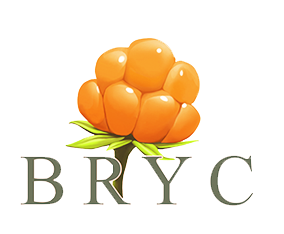Culture, sports and healthy lifestyle
Culture is a good arena for young people to meet and make contact, thereby laying the foundation for extended cooperation in all the fields of the Barents Cooperation. Young people need knowledge of the different cultures of the region and opportunities to participate in cultural exchanges.
The traditional mainstream and minority cultures need to be kept alive and the traditional forms of livelihood have to be learned by young people. There is a need for more projects and activities to combat prejudice and negative attitudes towards the indigenous peoples. The aim is to build up strong self-esteem in all groups in the region including minorities.
The youth programme must be used as a tool to highlight cultural diversity e.g. by facilitating dialogue and joint activities of young people from multicultural, multiethnic and multifaith backgrounds. It is an important aim to contribute to the fight against racism and xenophobia.
In the field of sports and promoting a healthy lifestyle, efforts should be directed towards increasing the number and scope of multilateral activities and networks, and exchange schemes between sports clubs are useful measures in this process.
Possible activities in this field:
- cultural exchange;
- sports activities/tournaments;
- festivals;
- attitude campaigns;
- training courses.
Education and entrepreneurship
Education is one of the priorities of the Barents programme and is highly relevant to young people. An important aim is to increase the possibilities for student exchange.
Entrepreneurship is a particularly important tool that encourages economic development in the Barents Region by activating young people, and must therefore be considered an investment in the future.
The Barents Region gives prosperous opportunities for business development in areas like tourism, culture, IT and trading. It is also important to highlight the possibilities within traditional fisheries and reindeer herding.
Another aim is to focus on internationalization and development of international networks between young entrepreneurs and innovators.
Possible activities in this field:
- cooperation and networks between educational institutions;
- network of young entrepreneurs;
- training courses: academic and entrepreneurial;
- exchanges between students and trainees;
- meeting places like conferences/seminars;
- projects to coordinate educational standards;
- projects on entrepreneurship and innovation.
Human Rights and Democracy
It is of high importance that the young generations have the knowledge about human rights and the importance of fulfilling the obligations in the UN's Universal Declaration of Human Rights. The young people’s right to be heard in matters concerning them and their future is important and necessary to be aware of.
Youth need experience in democratic decision-making processes to understand the benefits of democratic societies, and to start believing that you can make a difference. Engaging in, and being active members of, a non-governmental organization, gives valuable experience in putting own initiatives into life and taking part in decision-making processes. An active democracy also involves an active media, which is why young individuals in the media sector is an important part of furthering said goals.
Possible activities in this field:
- cooperation between NGOs;
- democracy/HR in schools;
- seminars and conferences;
- projects promoting youth initiatives;
- methodology development;
- encouraging youngsters to actively take part in the media.
Environmental issues
The environment is an area of special concern to young people, as it is part of their heritage, and the Northern regions are facing huge challenges brought by climate change.
It is particularly important to protect the natural environment of the Barents Region, due to its vulnerability and its importance for people in the North’s quality of life. Outdoor activities, hunting and fishing are of great importance to many Northerners. The areas of unperturbed and beautiful nature also give opportunities for business development within tourism and must be protected from serious damage.
The Barents Region is rich on natural recourses and gives challenges related to exploitation, for instance within forestry, fisheries and mining. The region is facing both short-term and long-term environmental challenges, due to oil and gas exploitation in the Barents Sea. Furthermore, the climatic changes will have huge impacts on the Northern areas.
Knowledge, competence and awareness must be built at the local level, so that local communities can deal with minor environmental problems by themselves. Young people can make an important contribution here.
Possible activities in this field:
- information campaigns;
- conferences/seminars on environmental challenges in the Arctic;
- campaigns/seminars on Energy efficiency;
- establishment of environmental NGOs and support to their right to work independently from Government structures.
Community development and voluntary work
Including promotion of active citizenship
Throughout history, youth around the world have demonstrated a passion and engagement to trigger social movements. Experience has shown that young people in general are eager to participate in activities that improve their communities and their own lives. What is missing in many cases is not motivation and interest from young people, but rather structured opportunities that help young people to develop their skills, knowledge and values necessary to build strong communities and democratic and participatory cultures. Therefore, it is important to strengthen the civil society through promotion of active citizenship, volunteer work and the establishment of NGOs.
The participatory aspect of membership in NGOs contributes to a heightened understanding of the forces that shape governments and societies, leading to greater transparency, accountability, and improved governance. Empowering young people to play an active role in community development allows democracy to evolve according to the needs and traditions of diverse political cultures.
Furthermore, young people need to be given the possibility to study, live, and work in the areas where they grew up. Young people should also be consulted when local problems are being identified, and their views must be listened to, understood, and taken into consideration.
Possible activities in this field:
- promotion of voluntary work;
- cooperation and exchange of experience between NGOs;
- contact making seminars and youth expos for NGOs;
- training courses;
- methodology development.


